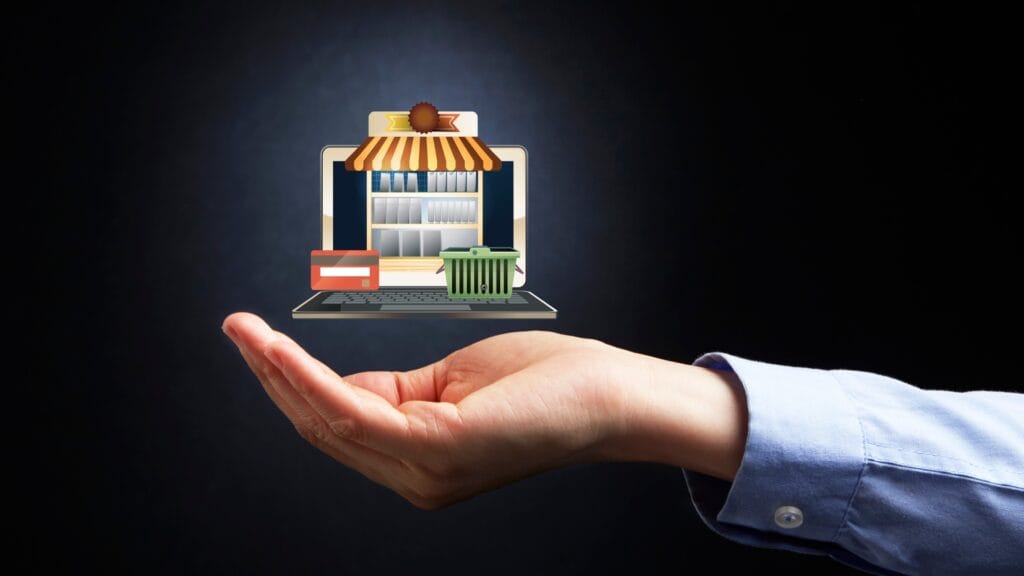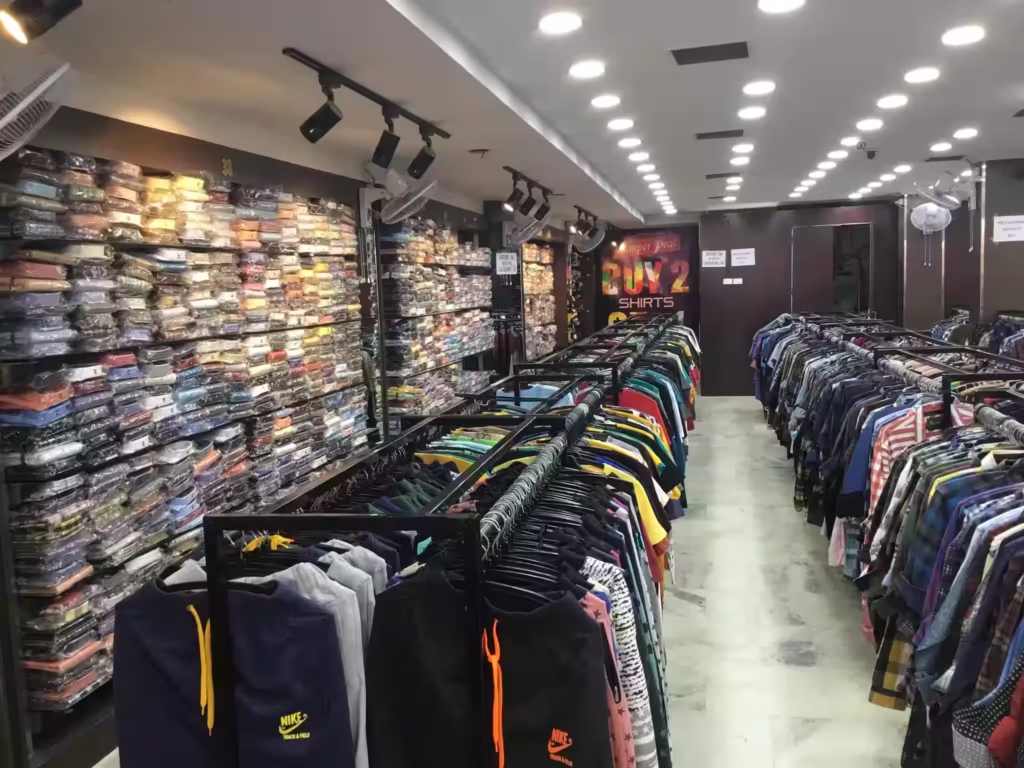The eCommerce Revolution in FMCG: Transforming Fast-Moving Consumer Goods for the Digital Age
The Fast-Moving Consumer Goods (FMCG) industry is experiencing an unprecedented digital transformation. With the global FMCG market projected to reach $220 billion by 2025, eCommerce has emerged as the driving force behind this explosive growth. From traditional grocery stores to cutting-edge online marketplaces, the way consumers purchase everyday essentials has fundamentally changed.

What is FMCG eCommerce and Why It Matters
FMCG eCommerce refers to the online sale and distribution of fast-moving consumer goods through digital platforms. These products include household essentials, personal care items, food and beverages, cleaning supplies, and other everyday necessities that consumers purchase frequently.
Market Growth Statistics
📈 FMCG eCommerce sales increased by 15.8% year-on-year in 2021[2]
🛒 Worldwide FMCG e-commerce penetration grew from 31.6% in 2019 to 39.8% in 2021[2]
🚀 Online purchase frequency rose from 6.9 per year to 10.4 purchases annually[2]
Key Categories in FMCG eCommerce
- Food & Beverages: Packaged foods, snacks, beverages, and ready-to-eat meals
- Personal Care: Skincare, haircare, oral care, and hygiene products
- Household Items: Cleaning supplies, detergents, and home maintenance products
- Health & Wellness: Vitamins, supplements, and health-focused products
- Baby Care: Diapers, baby food, and childcare essentials

The Digital Transformation of FMCG Industry
The FMCG sector has undergone a massive digital transformation driven by changing consumer behaviors, technological advancement, and the need for operational efficiency. Companies like Nestlé, Procter & Gamble, Unilever, Coca-Cola, and PepsiCo have successfully implemented digital strategies to enhance customer engagement and streamline operations[6].
Technology Driving FMCG eCommerce
🤖 Artificial Intelligence and Machine Learning
AI algorithms analyze vast amounts of consumer data to optimize inventory levels, forecast demand, and identify potential disruptions. The AI market in FMCG and retail is growing by 9% annually and will reach $1.565 trillion by 2033[4].
📱 Mobile Commerce Revolution
Mobile eCommerce sales of FMCG products are expected to account for 54% of total online sales by 2021[17]. Consumers increasingly prefer shopping through mobile apps for convenience and speed.
🏪 Quick Commerce (Q-Commerce)
Quick commerce gained momentum during the pandemic and has rapidly become preferred by urban consumers. The Q-commerce segment grew by 230% from 2021 to 2023[11], with platforms like Blinkit, JioMart, and BigBasket leading the charge.
🔗 Internet of Things (IoT)
IoT devices collect real-time data from various points in the supply chain, providing insights into inventory levels, equipment performance, and transportation conditions[3].

Benefits of FMCG eCommerce for Businesses and Consumers
| Benefits for Businesses | Benefits for Consumers |
|---|---|
| 📈 Expanded market reach beyond geographical limitations | 🛒 Convenience of shopping from anywhere, anytime |
| 💰 Lower operational costs compared to physical stores | ⚡ Fast delivery options, including same-day delivery |
| 📊 Data-driven insights for personalized marketing | 🎯 Personalized product recommendations |
| 🏪 Direct-to-consumer relationships | 💲 Price comparison and better deals |
| ⚙️ Automated inventory management | 📱 Mobile-friendly shopping experience |
Consumer Advantages of Online FMCG Shopping
According to recent studies, consumers prefer online FMCG shopping because of:
- Convenience: 30% of online grocery shoppers chose delivery in less than two hours in 2021[19]
- Wider Product Selection: Access to products from multiple brands and regions
- Contactless Shopping: Especially important during and after the pandemic
- Time Savings: Eliminates travel time and queuing
- Easy Reordering: Quick access to purchase history and favorites

Leading FMCG eCommerce Platforms and Marketplaces
Top Indian FMCG eCommerce Platforms
- BigBasket: One of India's most popular online grocery markets, launched in 2011, offering quality products at affordable prices[17]
- Blinkit (formerly Grofers): Quick commerce platform delivering groceries in minutes to hours, growing at ~75% YoY[10]
- JioMart: Powered by Reliance Retail, launched in over 200 cities across India[17]
- Nature's Basket: Premium grocery retail chain by Godrej focusing on finest food experiences[17]
- Amazon Prime Pantry: Amazon's dedicated FMCG and grocery delivery service
Global FMCG eCommerce Trends
- Direct-to-Consumer (D2C) Models: FMCG brands increasingly engage customers directly via their own online platforms[4]
- Multi-Store Ecommerce Setup: Enables businesses to manage multiple brands under one platform[14]
- B2B FMCG Marketplaces: Streamlining supply chains and improving operational efficiency[22]
- Hyperlocal Delivery: Ultra-fast delivery models for urban consumers
💡 Start Your FMCG eCommerce Journey Today!
Whether you're planning to launch a new FMCG business or transform your existing retail operation, eCommerce platforms offer unprecedented opportunities for growth and customer engagement.
Future Trends in FMCG eCommerce
🚀 Emerging Technologies Shaping the Future
Generative AI and Voice Technologies
Companies like Nestlé use proprietary generative AI tools in their product innovation process, helping teams generate and test product ideas faster. PepsiCo created a voice AI system for B2B orders in Latin America that reduces order errors and speeds up the process by 40%[4].
Augmented Reality (AR) and Virtual Reality (VR)
FMCG brands are deploying AR and VR experiences allowing consumers to virtually test products, enhancing engagement and purchase confidence[4].
Sustainable and Eco-Friendly Products
Consumer demand for sustainable products is driving FMCG companies to adopt eco-packaging, ethical sourcing, and carbon footprint transparency. Companies must integrate sustainable practices to meet evolving consumer expectations[4].
Market Predictions for 2025 and Beyond
Growth Projections
🎯 E-commerce sales in FMCG expected to grow at 27% CAGR from 2021 to 2026[7]
🌏 Global online share of FMCG projected to reach 9.2% by 2025 (compared to 1.3% in 2012)[18]
🇮🇳 Indian FMCG market projected to reach $220 billion by 2025, growing at 14.9% CAGR[7]
How to Start Your FMCG eCommerce Business
Essential Steps for FMCG eCommerce Success
- Choose the Right Platform: Select between B2B, B2C, or multi-vendor marketplace models
- Focus on Mobile Optimization: Ensure your platform works seamlessly on mobile devices
- Implement Inventory Management: Use automated systems for stock tracking and order fulfillment
- Secure Payment Gateways: Provide multiple secure payment options
- Optimize for SEO: Target keywords like "FMCG products," "online grocery," and "fast delivery"
- Leverage Data Analytics: Use consumer insights for personalized experiences
- Build Strong Logistics: Partner with reliable delivery services for quick commerce
Key Features for FMCG eCommerce Platforms
- 🛒 User-Friendly Interface: Easy navigation for customers and administrators
- 📦 Batch Processing: Handle large order volumes efficiently
- 🔐 Security Features: Protect customer data and payment information
- 📱 Mobile App Integration: Native mobile apps for enhanced user experience
- ⚡ Quick Delivery Options: Same-day and next-day delivery capabilities
- 🎯 Personalization: AI-driven product recommendations

Challenges and Solutions in FMCG eCommerce
Common Challenges
- High Delivery Costs: Especially for perishable items and small order values
- Price Sensitivity: Only 36% of consumers willing to pay extra for online grocery shopping[19]
- Customer Experience Expectations: Demand for seamless, hassle-free shopping
- Supply Chain Complexity: Managing inventory across multiple locations
- Competition: Intense competition from established players
Strategic Solutions
- Optimize Order Values: Encourage larger basket sizes through bundling and promotions
- Invest in Technology: Use AI and automation to reduce operational costs
- Focus on Customer Loyalty: Implement reward programs and personalized experiences
- Strategic Partnerships: Collaborate with logistics providers and technology companies
- Continuous Innovation: Stay ahead of market trends and consumer preferences
Conclusion: The Future is Digital for FMCG
The FMCG eCommerce revolution is not just a trend – it's the future of retail. With market projections showing exponential growth, businesses that embrace digital transformation today will be the leaders of tomorrow. From AI-powered personalization to sustainable product offerings, the opportunities in FMCG eCommerce are limitless.
Whether you're a new business looking to enter the FMCG market or an established retailer planning to expand online, the time to act is now. The combination of technology, consumer demand, and market opportunity creates the perfect storm for FMCG eCommerce success.
Ready to Transform Your FMCG Business?
Join the digital revolution and discover how eCommerce can accelerate your FMCG business growth. Start building your online presence today and capture the growing market of digital-first consumers.


